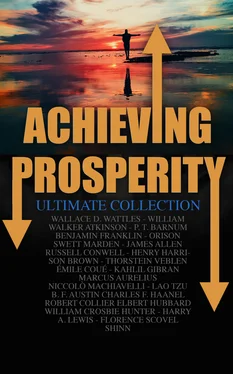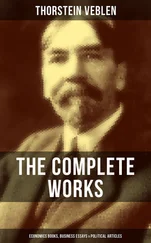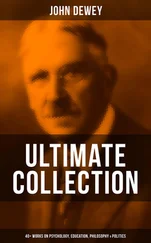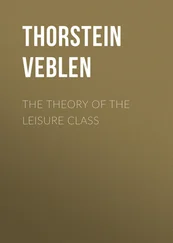Next in the procession of discovery, among other animals of less note, was presented “a quadruped with an amazingly long neck, head like a sheep, bearing two long spiral horns, white as polished ivory, and standing in perpendiculars parallel to each other. Its body was like that of a deer, but its forelegs were most disproportionately long, and its tail, which was very bushy and of a snowy whiteness, curled high over its rump and hung two or three feet by its side. Its colors were bright bay and white, brindled in patches, but of no regular form.” This is probably the animal known to us on earth, and particularly along the Mississippi River, as the “guyascutus,” to which I may particularly refer in a future article.
But all these beings faded into insignificance compared with the first sight of the genuine Lunatics, or men in the moon, “four feet high, covered, except in the face, with short, glossy, copper-colored hair,” and “with wings composed of a thin membrane, without hair, lying snugly upon their backs from the top of their shoulders to the calves of their legs,” “with faces of a yellowish flesh-color—a slight improvement on the large ourang-outang.” Complimentary for the Lunatics! But, says the chronicler, Lieutenant Drummond declared that “but for their long wings, they would look as well on a parade-ground as some of the cockney militia!” A little rough, my friend the reader will exclaim, for the aforesaid militia.
Of course, it is impossible, in a sketch like the present, to do more than give a glimpse of this rare combination of astronomical realities and the vagaries of mere fancy, and I must omit the Golden-fringed Mountains, the Vale of the Triads, with their splendid triangular temples, etc., but I positively cannot pass by the glowing mention of the inhabitants of this wonderful valley—a superior race of Lunatics, as beautiful and as happy as angels, “spread like eagles” on the grass, eating yellow gourds and red cucumbers, and played with by snow-white stags, with jet-black horns! The description here is positively delightful, and I even now remember my poignant sigh of regret when, at the conclusion, I read that these innocent and happy beings, although evidently “creatures of order and subordination,” and “very polite,” were seen indulging in amusements which would not be deemed “within the bounds of strict propriety” on this degenerate ball. The story wound up rather abruptly by referring the reader to an extended work on the subject by Herschel, which has not yet appeared.
One can laugh very heartily, now, at all this; but nearly everybody, the gravest and the wisest, too, was completely taken in at the time: and the “Sun,” then established at the corner of Spruce street, where the “Tribune” office now stands, reaped an increase of more than fifty thousand to its circulation—in fact, there gained the foundation of its subsequent prolonged success. Its proprietors sold no less than $25,000 worth of the “Moon Hoax” over the counter, even exhausting an edition of sixty thousand in pamphlet form. And who was the author? A literary gentleman, who has devoted very many years of his life to mathematical and astronomical studies, and was at the time connected as an editor with the “Sun”—one whose name has since been widely known in literature and politics—Richard Adams Locke, Esq., then in his youth, and now in the decline of years. Mr. Locke, who still survives, is a native of the British Isles, and, at the time of his first connection with the New York press, was the only short-hand reporter in this city, where he laid the basis of a competency he now enjoys. Mr. Locke declares that his original object in writing the Moon story was to satirize some of the extravagances of Doctor Dick, and to make some astronomical suggestions which he felt diffident about offering seriously.
Whatever may have been his object, his hit was unrivaled; and for months the press of Christendom, but far more in Europe than here, teemed with it, until Sir John Herschel was actually compelled to come out with a denial over his own signature. In the meantime, it was printed and published in many languages, with superb illustrations. Mr. Endicott, the celebrated lithographer, some years ago had in his possession a splendid series of engravings, of extra folio size, got up in Italy, in the highest style of art, and illustrating the “Moon Hoax.”
Here, in New York, the public were, for a long time, divided on the subject, the vast majority believing, and a few grumpy customers rejecting the story. One day, Mr. Locke was introduced by a mutual friend at the door of the “Sun” office to a very grave old orthodox Quaker, who, in the calmest manner, went on to tell him all about the embarkation of Herschel’s apparatus at London, where he had seen it with his own eyes. Of course, Locke’s optics expanded somewhat while he listened to this remarkable statement, but he wisely kept his own counsel.
The discussions of the press were very rich; the “Sun,” of course, defending the affair as genuine, and others doubting it. The “Mercantile Advertiser,” the “Albany Daily Advertiser,” the “New York Commercial Advertiser,” the “New York Times,” the “New Yorker,” the “New York Spirit of ‘76,” the “Sunday News,” the “United States Gazette,” the “Philadelphia Inquirer,” and hosts of other papers came out with the most solemn acceptance and admiration of these “wonderful discoveries,” and were eclipsed in their approval only by the scientific journals abroad. The “Evening Post,” however, was decidedly skeptical, and took up the matter in this irreverent way:
“It is quite proper that the “Sun” should be the means of shedding so much light on the Moon. That there should be winged people in the moon does not strike us as more wonderful than the existence of such a race of beings on the earth; and that there does still exist such a race, rests on the evidence of that most veracious of voyagers and circumstantial of chroniclers, Peter Wilkins, whose celebrated work not only gives an account of the general appearance and habits of a most interesting tribe of flying Indians; but, also, of all those more delicate and engaging traits which the author was enabled to discover by reason of the conjugal relations he entered into with one of the females of the winged tribe.”
The moon-hoax had its day, and some of its glory still survives. Mr. Locke, its author, is now quietly residing in the beautiful little home of a friend on the Clove Road, Staten Island, and no doubt, as he gazes up at the evening luminary, often fancies that he sees a broad grin on the countenance of its only well-authenticated tenant, “the hoary solitary whom the criminal code of the nursery has banished thither for collecting fuel on the Sabbath-day.”
Table of Contents
THE MISCEGENATION HOAX.—A GREAT LITERARY SELL.—POLITICAL HUMBUGGING.—TRICKS OF THE WIRE-PULLERS.—MACHINERY EMPLOYED TO RENDER THE PAMPHLET NOTORIOUS.—WHO WERE SOLD AND HOW IT WAS DONE.
Some persons say that “all is fair in politics.” Without agreeing with this doctrine, I nevertheless feel that the history of Ancient and Modern Humbugs would not be complete without a record of the last and one of the most successful of known literary hoaxes. This is the pamphlet entitled “Miscegenation,” which advocates the blending of the white and black races upon this continent, as a result not only inevitable from the freeing of the negro, but desirable as a means of creating a more perfect race of men than any now existing. This pamphlet is a clever political quiz; and was written by three young gentlemen of the “World” newspaper, namely. D. G. Croly, George Wakeman, and E. C. Howell.
The design of “Miscegenation” was exceedingly ambitious, and the machinery employed was probably among the most ingenious and audacious ever put into operation to procure the indorsement of absurd theories, and give the subject the widest notoriety. The object was to so make use of the prevailing ideas of the extremists of the Anti-Slavery party, as to induce them to accept doctrines which would be obnoxious to the great mass of the community, and which would, of course, be used in the political canvass which was to ensue. It was equally important that the “Democrats” should be made to believe that the pamphlet in question emanated from a “Republican” source. The idea was suggested by a discourse delivered by Mr. Theodore Tilton, at the Cooper Institute, before the American Anti-Slavery Society, in May 1863, on the negro, in which that distinguished orator argued, that in some future time the blood of the negro would form one of the mingled bloods of the great regenerated American nation. The scheme once conceived, it began immediately to be put into execution. The first stumbling-block was the name “amalgamation,” by which this fraternizing of the races had been always known. It was evident that a book advocating amalgamation would fall still-born, and hence some new and novel word had to be discovered, with the same meaning, but not so objectionable. Such a word was coined by the combination of the Latin miscere , to mix, and genus , race: from these, miscegenation—a mingling of the races. The word is as euphonious as “amalgamation,” and much more correct in meaning. It has passed into the language, and no future dictionary will be complete without it. Next, it was necessary to give the book an erudite appearance, and arguments from ethnology must form no unimportant part of this matter. Neither of the authors being versed in this science, they were compelled to depend entirely on encyclopedias and books of reference. This obstacle to a New York editor or reporter was not so great as it might seem. The public are often favored in our journals with dissertations upon various abstruse matters by men who are entirely ignorant of what they are writing about. It was said of Cuvier that he could restore the skeleton of an extinct animal if he were only given one of its teeth, and so a competent editor or reporter of a city journal can get up an article of any length on any given subject, if he is only furnished one word or name to start with. There was but one writer on ethnology distinctly known to the authors, which was Prichard; but that being secured, all the rest came easily enough. The authors went to the Astor Library and secured a volume of Prichard’s works, the perusal of which of course gave them the names of many other authorities, which were also consulted; and thus a very respectable array of scientific arguments in favor of Miscegenation were soon compiled. The sentimental and argumentative portions were quickly suggested from the knowledge of the authors of current politics, of the vagaries of some of the more visionary reformers, and from their own native wit.
Читать дальше












